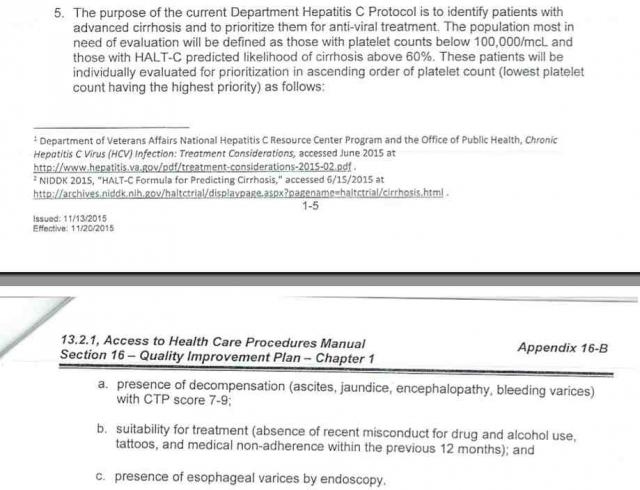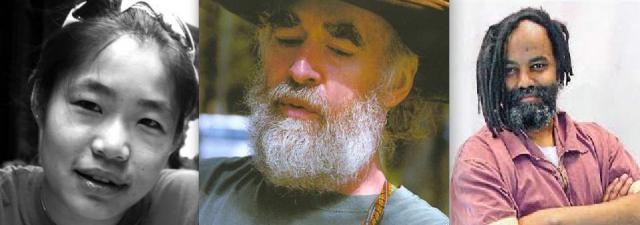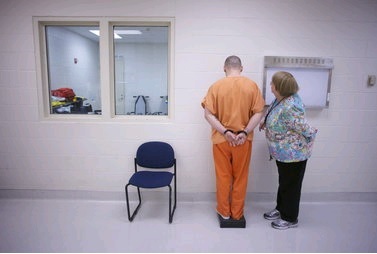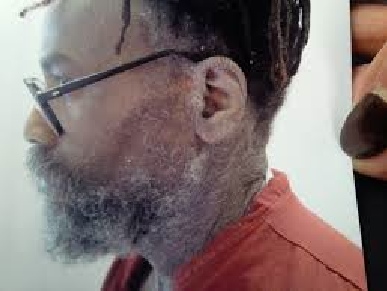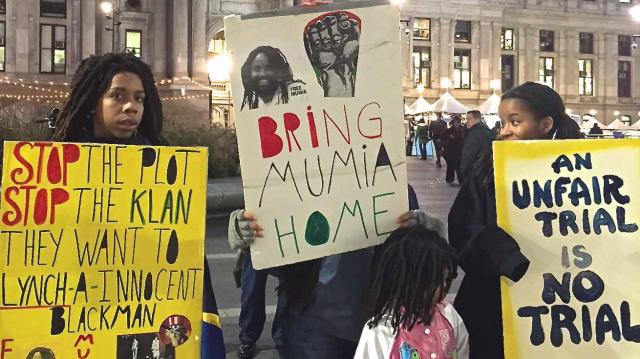Philadelphia — A number of things converged to make my New Years special this year. Three of them were good, one was not so good — in fact, it had the sense of a nasty omen for the future.
First I had a great dinner with friends, including several veterans, at a Vietnamese restaurant in Upper Darby owned by a good friend whose father was an officer in the Vietnamese ARVN army in Nha Trang. He jokes he was “born in a bunker.” He’s the epitome of the hard-working Asian, with one daughter who is a highly respected physician, another in college. When talking to Edward I always wonder what his life would have been like if the United States had had the sense to take another course than the one they did at the close of World War Two and, later, following the French defeat. We’ll never know these what-ifs.
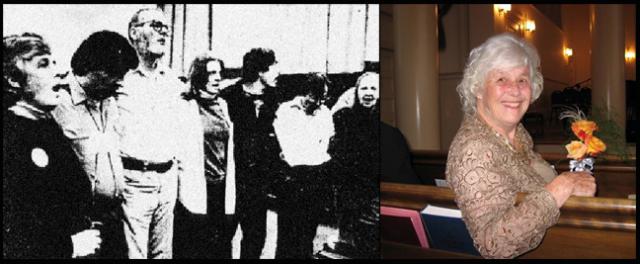 The Plowshares group with Agnes Bauerlein at the far left; and Agnes in more recent times
The Plowshares group with Agnes Bauerlein at the far left; and Agnes in more recent times
Today, I attended a memorial for Agnes Bauerlein, a Dutch-born peace-movement giant here in Philadelphia who recently died. She and her deceased husband, Charlie, a member of our Veterans For Peace chapter in Philly, parented 11 children. I always felt I was one of Agnes’ extended family, in a way one of her and Charlie’s “kids” as well. Agnes troubled her husband Charlie, a successful engineer with his own company, and many in her family, by devoting her life to civil disobedience. She poured blood over plans for bombs and used a hammer to dent parts for atomic bombs at an AVCO nuclear weapons plant she and others got into with fake IDs. What most impressed me was Agnes’s determination in 1991 to travel to Baghdad, where she was during the bombing that went on during the First Gulf War. Some said she was foolish and a little mad. For me, she was a courageous person who nurtured nearly a dozen kids and decided she wasn’t going to shut up and go along quietly when she saw US militarism at work. She saw the bodies of her brother and sister killed by bombs in World War Two, so unlike most of us, she well knew what she was protesting.
Agnes was born and raised in Holland and her family’s house was along the front lines at the end of the war. Her mother said opposing US military policy was wrong, because it was the US military that saved the family from the Nazis. That didn’t trouble Agnes. She blew off the criticism from the political right side of her family and followed her heart with courage and conviction, pretty much like no one else I’ve ever known. Her appeal in the AVCO case was delayed indefinitely and she never did real prison time for that offense. Charlie eventually came around and stood up for Agnes’ actions. He had voted for Reagan, but ended up a deeply committed fighter for peace. Some said, as a man and a husband, he’d lost control of his wife. He said that was nonsense: his wife Agnes had a good, honorable mind of her own and he was fine with that. Devoted Catholics, they both had a strong spiritual life, which fed into their peace work, in Charlie’s case that meant working with the VFP chapter in Philadephia.

